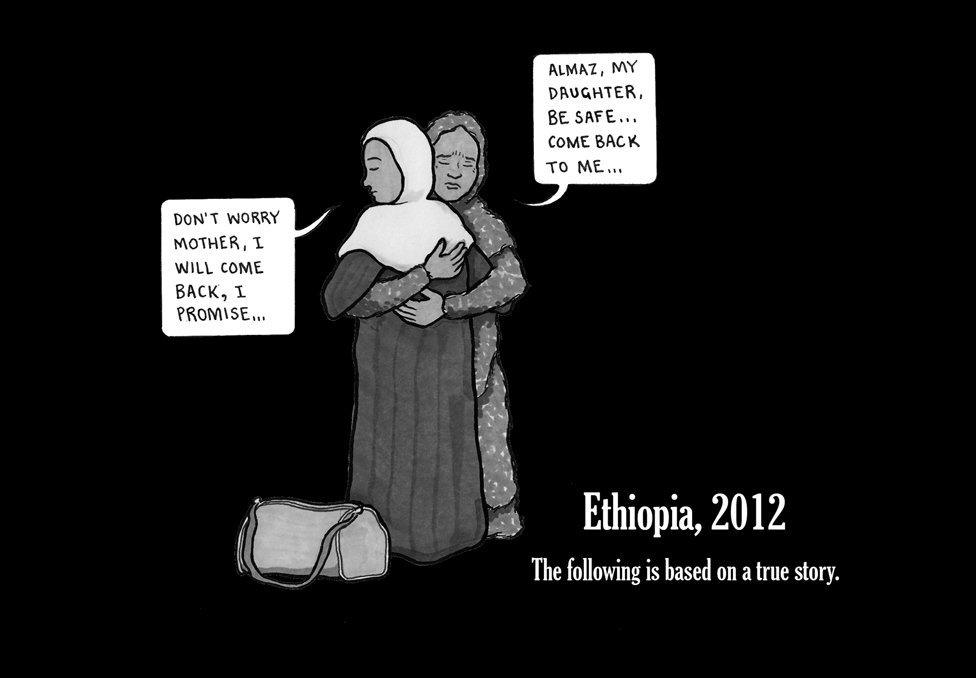India woman’s arm ‘cut off by employer’ in Saudi Arabia
- Published
Kasturi Munirathinam says she was trying to escape the house when her Saudi employer "chopped off" her arm
India's foreign ministry has complained to the Saudi Arabian authorities following an alleged "brutal" attack on a 58-year-old Indian woman in Riyadh.
Kasturi Munirathinam's right arm was chopped off, allegedly by her employer, when she tried to escape from their house last week, reports say.
Ms Munirathinam was working as a domestic help. She is recovering in hospital.
Her family has alleged that she was being tortured by her Saudi employers.
Saudi authorities have not commented on the incident yet.
'Disturbed'
Indian Foreign Minister Sushma Swaraj wrote on Twitter, external: "This is unacceptable. We have taken this up with Saudi authorities. Our embassy is in touch with the victim."
"Chopping of [arm] of Indian lady - we are very much disturbed over the brutal manner in which Indian lady has been treated in Saudi Arabia," Ms Swaraj added, external.
The family of Ms Munirathinam in the southern Indian city of Chennai said that her employers had been "angered" after she complained about the "harassment" she was facing at her employer's home, where she had begun working three months ago.
They are asking the government to secure them compensation from the family, and also help pay Ms Munirathinam's medical expenses.
Serious condition
"Ever since she went to work with this family in July, things were not alright. My mother was not even allowed to speak to us over the phone, she was not given proper food and was forced to work long hours," her son S Kumar told BBC Hindi.
"When she tried to escape the harassment and torture, her right arm was chopped off by the woman employer. Now my sister can't even sit and do simple things on her own, as her spinal cord has also been injured," her sister S Vijayakumari added.
Ms Vijayakumari said her sister had been hospitalised in Riyadh and was "in a serious condition", adding that although they were relieved she was getting proper medical attention, they were unable to afford the expenses.
They have asked the Tamil Nadu state government to help them financially and have also sought the Indian government's help in securing Ms Munirathinam's return to India.
The family said that they had come to know of the incident through the "agents" who had hired her to work in Saudi Arabia. They also claim to have received a video message from Ms Munirathinam that has been recorded on a mobile phone.
Indian foreign ministry spokesperson Vikas Swarup told the Indian Express newspaper, external that India would "continue to seek justice for the victim".
"Our embassy in Riyadh has taken up the matter with the Saudi Foreign Office and asked for strict action in the matter and severe punishment for the sponsor," he said.
He said India had sought an independent probe in the incident and urged that "a case of attempted murder be lodged against the sponsor so that he is punished, if found guilty as per law".
Thousands of men and women from India travel to Arab states every year to seek work as domestic servants and labourers.

Almaz's story
The poor treatment and abuse of maids in the Middle East is a familiar tale. Benjamin Dix and Lindsay Pollock tell the disturbing story of a young Ethiopian woman who took a job as a domestic help in Saudi Arabia but was treated like a slave.

